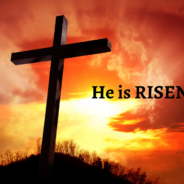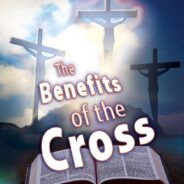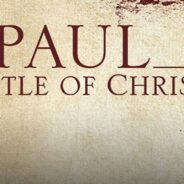Posted by Admin on 2:36 pm in Sunday School | Comments Off on THE MAN SAMUEL (PART 3), APRIL 28TH, 2024

CENTRAL THOUGHTDischarge of God’s assignment demands due diligence. TEXT: 1 SAM.8:1-22. INTRODUCTION: Samuel had done everything to distinguish himself as a leader of God’s people. He served under the priest Eli and witnessed the calamity that befell that family. He saw the terror of God visited upon the Philistines when they seized the ark of God. At the height of his glory, he was well known and sought after throughout Israel. He held courts in Bethel, Gilgah and Mizpeh and had his residence in Ramah. He brought reformation and led the nation in repentance back to God. But to the dismay of this divine general, his sons failed to follow his footsteps in serving God, and rather went after the pleasures of life. This became one of the premises on which the Elder’s demand for a king. Though Samuel was not happy with the request, he was instructed by God to oblige them. Taking instructions from God, Samuel was able to anoint the first king of Israel, in the person of Saul, the son of Kish. LESSON OBJECTIVESThe objectives of this lesson are to: Identify the qualities of the king chosen by the people. Explain the people’s reaction to Samuel’s warnings. Explain how Saul eventually met Samuel. Discuss Saul’s reaction to Samuel’s information. Discuss how Saul was anointed king over Israel by Samuel. BIBLE TRUTH:QUESTION 1) HOW DID SAMUEL REACT TO THE ELDER’S DEMAND FOR A KING ? 1 SAM.8:6-9.The demand for a king indicated Samuel in two ways, namely, his age and the lifestyle of his children. Samuel was displeased and probably surprised. He felt it was a slight on him and a vote of no confidence from the people for whom his whole life was pledged. However, he still went to pray and took time out to seek God’s direction. God encouraged him not to be too personal about the matter, as it was also an affront on His authority. God directed him to accede to their request, but that he should also pre-inform them of the implications. QUESTION 2) WHAT WERE THE QUALITIES OF THE DESIRED KING BY THE PEOPLE AND WHAT WAS GOD’S WARNING?From the angle of the Elder’s, they needed a king whose physical build would be intimidating, and whose voice will thunder. His royalty will be physically evident, and he must be an excellent warrior. The qualities desired by the Elder’s of their king were all about outward and visible traits. They forgot God in their estimation, and just wanted to be like other nations whose kings adorned dreadful features.However, God warned them through Samuel, that a human king would bring along unforeseen inconveniences they never imagined. Prominent among the inconvenience were curtailment of their freedom, conscription for military duties. Provision of forced labor through the children, taxation of their harvests and abduction of their daughters into forced marriages. All these came with the kingship and the associated fanfare of the royal family and college of advisors. QUESTION 3) DESCRIBE THE ENCOUNTER BETWEEN SAUL AND SAMUEL, AND STATE THE LESSON TO NOTE. 1 SAM 9:1-14.The encounter between Samuel and Saul was circumstantial and seemed to have been arranged by God. Saul was out in search of some missing family domestic animals when providence led him to the presence of the Seer in the...
read more
Posted by Admin on 11:23 am in Uncategorized | Comments Off on THE MAN SAMUEL PART 2, APRIL 21ST, 2024
CENTRAL THOUGHTThose who rebel against God’s authority and rule are directly pledging loyalty to Satan. INTRODUCTION:The two sons of Eli, Hophni and Phinehas, died in the battle against the Philistines. Eli also died when the bad news of the death of his sons and the seizure of the ark by the Philistines reached him. The worship and pilgrimage to Shiloh was truncated and Israel became subservient to the Philistines. It must have been a big blow to Samuel considering how close he was to his family. This was the state when Samuel became judge in Israel.After many years of reflection, Samuel took his first major steps, which was to initiate national repentance and prayers. This action provoked the Philistines who now launched attack against Israel. The intercession of Samuel and his word of motivation gingered the people of Israel to the resounding defeat of the Philistines at Ebenezer.Samuel had a complex administrative structure that saw him create offices in Bethel, Gilgah and Mizpeh, while his home was in Ramah. BIBLE TRUTH: QUESTION 1) WHAT WERE THE HIGH POINTS OF SAMUEL’S RULE AS A JUDGE, PROPHET, AND PRIEST IN ISRAEL? For Samuel, the transition to headship was sudden. It followed the tragic death of Eli and his sons. After twenty years, the peoples heart yearned for God, and Samuel led them to repentance. While the people gathered at Mizpeh, the Philistines attacked and God thundered from heaven, and the Philistines were defeated.He administered the land by going around in circuit with bases in Bethel, Gilgah and Mizpeh, while his permanent home was in Ramah. As he grew old, he appointed his sons to serve as judges. But they were materially minded, took bribes, and perverted justice.The Elders of Israel came and demanded for a King so as to be like other nations. Samuel was displeased at this, but God told him to oblige them. Eventually he had the privilege of anointing the first and second Kings of Israel in the persons of Saul and David. Samuel was not a warrior, but he commanded great respect among the people. QUESTION 2) WHAT WERE THE MAJOR CHALLENGES SAMUEL FACED, AND HOW DID HE TACKLE THEM?There were several challenges Samuel faced as a Leader. The tragic events that led to the death of Eli and the seizure of the Ark by the Philistines were the first major challenge. Suddenly, he became the leader. He had no choice but to learn from the errors of Eli. Next, his administrative approach took much of his time, visiting three other cities in turns to examine matters for adjudication. Also, he had his family challenge in that his two sons did not walk in his footsteps and were cited later by those agitating for monarchy. Another challenge was the regular departure of the people from Jehovah to strange gods. Security threat from the Philistines from time to time also occurred. In many of these challenges he looked up to God and often interceded on behalf of the nation. Samuel was firm at dispensing justice and was well known as a true voice of God throughout his lifetime. QUESTION 3) WHY DID THE ELDERS OF ISRAEL DEMAND FOR A KING? 1 SAM.8:1-5The ministry of Samuel was an integrated one that put the judge, the prophet, and the priest...
read more
Posted by Admin on 10:57 pm in Sunday School | Comments Off on THE MAN SAMUEL ( PART 1), APRIL 14TH, 2024

CENTRAL THOUGHT Personal loyalty and commitment to God distinguishes a man. INTRODUCTION: Samuel was one of the very significant historical figures in the evolution of the state of Israel. His birth was a miraculous answer to the prayers of Hannah, a wife of Elkanah, a Levite from Ephraim. In gratitude to God, the family pledged the young boy to the service of God for the rest of his life. Samuel consequently grew up with the household of Eli, the Priest in Shiloh. Samuel showed interest, focus and dedication in the service of God. He was soon distinguished by his loyalty to God and commitment to the ministry. This was in sharp contrast to the privileged sons of Eli, Hophni and Phinehas, who abused the office of Priesthood and would not accept any correction. A remarkable event was the call of the boy Samuel by God and his inability to discern the voice of God, assuming it to Eli’s call. In his innocence, he also related to Eli everything that God told him about the Priest’s impending judgement. In this first part of the study, we shall examine the childhood experiences of Samuel and the important lessons we could learn from them. Lesson objectives:The objectives of this study are to:Compare the lifestyle of Eli’s son’s and SamuelExplain what it means to be in favor with God and with man.Explain how to recognize the voice of God; and List the lessons we can draw from the childhood ministry of Samuel. Lesson Objectives: The Objectives of this lesson is to: 1.) Highlight the key points of Samuel’s leadership over Israel; 2.) Identify the major challenges he faced as a judge, a prophet and a seer in Israel; 3.) Explain why the elders of Israel demanded for a king. 4.) Explain how God reacted to the demand; and 5.) Comment on the lifestyle of Samuel’s sons. BIBLE TRUTH: QUESTION 1) COMPARE THE LIFESTYLE OF ELI’S SONS AND THAT OF SAMUEL. Hophni and Phinehas, as well as Samuel, all grew up in the same environment, within the vicinity of the tabernacle; but their characters manifested differently. Hophni and Phinehas were described as sons of Belial, who did not Know God. They exhibited wicked, corrupt, and immoral tendencies. They were overbearing and became burdensome to pilgrims. They would not listen to their father’s warning. To them the priesthood was to serve their lust and greed. In the same household was Samuel, a young innocent mind who had imbibed the fear of God into his activities. He ministered sincerely to God, to Eli and to the people. Soon he became well-known and sought-after and grew from one level of revelation to another by the word of God. While Eli’s sons were a grief to him, the boy Samuel proved to be his source of Joy and was always available to minister grace. QUESTION 2) WHAT DOES IT MEAN TO BE IN FAVOR WITH GOD AND WITH MAN ? ACTS 24:16. This is a description of Samuel’s relationship with God, and with fellow humans. Being in favor with God begins with a cordial personal acquaintance with the word and ways of God. This implies an intimacy to the extent that one is admitted into the plans and visions of God. One is thereby clothed with God’s presence...
read more
Posted by Admin on 1:38 am in Sunday School | Comments Off on THE POST RESURRECTION MINISTRY OF CHRIST, APRIL 7TH, 2024

CENTRAL THOUGHTChrist still ministers in His church today. TEXT: MATT.28:16-20; JOHN 20:19-29; ACTS 1:3-11 INTRODUCTION:After the resurrection of the Lord Jesus and before his ascension into heaven, He appeared to His disciples in bodily form on several occasions. This was to convince them that He is risen, in view of the task ahead. Even after His resurrection, Jesus continued to physically manifest Himself to the church in ways that show that He is alive.The post resurrection ministry of Christ has many remarkable events in church history. It was during this period that the ministry of the Apostles was confirmed, and the great commission emphatically declared. The outpouring of the Holy Spirit came to pass, and the church started in earnest. Non-Jews were admitted into the grace of God, and the message of the kingdom became clearer to His disciples.The ministry of Christ is still very active to this day. There are daily signs and wonders done in His Name, showing that the risen Christ is still the same yesterday, today, and forever (Heb.13:8). It Is good and important for us to continually remind ourselves of the presence of Jesus Christ in the present-day church. LESSON OBJECTIVESThe objectives of this study are to: Discuss instances of the appearance of Jesus Christ after His resurrection. Examine the reactions of those He appeared to; Identify the assignment and assurances given to believers after His resurrection. BIBLE TRUTH: QUESTION 1) FROM THE SCRIPTURES, IDENTIFY INDIVIDUALS OR GROUPS WHO ENCOUNTERED THE LORD JESUS AFTER HIS RESURRECTIONThe angels of God were the first to testify that Christ has risen and no longer in the tomb ( Luke 24:4-6). Human witnesses who had encounters with the Lord Jesus after His resurrection were many. Some of those recorded in the Scriptures are as follows:(a) Mary Magdalene saw Jesus in the garden around the tomb and mistook Him for the gardener (John 20:14-18).(b) The ten disciples saw Jesus and talked with Him while they were locked up in the house. Thomas was not present at this encounter (John 20:19).(c) In His second appearance to the eleven disciples, the Lord told Thomas to “reach out and touch” His hands and side, and confirm the marks of His wounds (John 20:26-29).(d) Cleopas and one other disciple encountered the Lord Jesus on the road to Emmaus and talked about the recent events of the crucifixion, without knowing that it was the Lord, until “their eyes were opened”. (Luke 24:13-31).(e) He appeared to Saul of Tarsus, then a great enemy of the church, on the road to Damascus in a life-changing encounter (Acts 9:3-5)(f) Several other disciples were mentioned as having seen the resurrected Christ at various instances.(1 Cor.15:5-9) QUESTION 2) WHAT WERE THE REACTIONS OF THOSE WHO SAW JESUS AFTER HIS RESURRECTION?They all knew the fact that Jesus was dead and buried and were all mourning this great calamity. In this mood, when they saw Jesus physically, they were initially filled with fear, thinking they had seen a ghost. They doubted if it was really Christ or some other strange spirit. Eventually they believed, when Jesus spoke and reassured them, they were filled with joy. They became more attentive and inquisitive to know more about Him. For a period of forty days, He appeared to them, fellowshipped with them and encouraged...
read more
Posted by Admin on 11:02 am in Sunday School | Comments Off on THE RESURRECTED CHRIST, MARCH 31ST, 2024

CENTRAL THOUGHTWithout the resurrection, the belief in God’s saving grace through Christ is vain. TEXT: JN 11:25-26, JN. 20:1-18, 1 COR. 15:1-4, 14-21 INTRODUCTION:The resurrection of Jesus Christ is foundational to the Christian faith and without it, the faith of the believer in Christ, is in vain (1 Cor.15:17). The manner in which Jesus died, buried, and resurrected was unique, with infallible proofs and had no precedence. The resurrection on the third day was literal, real, and physical and it was after he was crucified, confirmed dead, and buried. All four gospels recorded that Jesus resurrected on the first day of the week (Luke 24:1, John 20:1), but Matthew (Matt. 28:1) and Mark (Mark 16:1) specifically added that it was after the sabbath (our present-day Saturday) and so Sunday could be regarded as the resurrection morning. The great mystery of godliness is based on the truth that God was manifested in the flesh, justified in the Spirit, seen of angels, preached unto the Gentiles, believed on in the world and received up into glory (1 Tim. 3:16).The resurrection of Jesus Christ is a very important event that provides hope and assurance that by His resurrection we have eternal life. LESSON OBJECTIVES1.) To understand what the word “resurrection” means.2.) Outline proofs of the resurrection of Jesus Christ.3.) Know what resurrection implies and appreciate why it is celebrated annually; and also4.) Outline what the resurrection teaches us. BIBLE TRUTH QUESTION 1A) WHAT IS THE MEANING OF RESURRECTION?According to Merriam-Webster Dictionary, the word “Resurrection” is the rising again to life of all the human dead before the final judgement or the state of one risen from the dead. Also, the word ‘RESURRECTION” could mean bringing back to life one that was dead. It is translated from the Greek word “Anastasias” in the New Testament which means “rising up” or “standing again”. QUESTION 1B) WHAT DO YOU UNDERSTAND BY THE RESURRECTION OF JESUS CHRIST?JOHN 19:30-36, MATT. 28:1-8. This is the Christian belief that God raised Jesus after His crucifixion, starting HIS exalted life as CHRIST and LORD (Phil. 2:9-11). Jesus Christ was crucified, died, and was buried, but on the third day, he came back to life again. The resurrection was a real, literal, physical, raising of Jesus’ body from the dead. The resurrection of Jesus Christ is the rising up of Jesus Christ from the dead. QUESTION 2) HOW DO WE KNOW THAT JESUS CHRIST WAS RESURRECTED?ACTS 1:3, REV. 1:18There are many infallible proofs to show that Jesus rose from the dead; a few are outlined below:-That His Tomb Empty Is the Evidence:Matt. 27:57-66 tells us that a rich man from Arimathea, named Joseph, laid the dead body of Jesus in a tomb hewn out of rock, and that he sealed the tomb by rolling a large stone against its door. The passage also tells us that a guard was placed at the tomb to secure the tomb. The tomb became empty as the Lord rose from the dead with power and came out. Luke 24:3 says, “And they entered in, and found not the body of the Lord Jesus”. What else can this be but the proof of the Lord’s resurrection? If Christ had not risen from the dead again, His tomb should still remain closed like others that have died;...
read more
Posted by Admin on 10:59 am in Sunday School | Comments Off on BENEFITS OF THE CROSS OF CHRIST, MARCH 24TH, 2024

CENTRAL THOUGHTThe death and resurrection of Jesus Christ purchased total salvation for the believer. TEXT: Isaiah 53:1-10 INTRODUCTION:The cross is symbolic of suffering, shame, and death, yet it is the wisdom of God for our total salvation (1 Cor. 1:18-21). The sin of our progenitor’s (Adam and Eve) permeated the entire human race. Being a just God, this sin must be punished for “The wages of sin is death …. Rom. 6:23a). Glory to God! Jesus voluntarily bore the punishment of our sins, took our guilt upon Himself and thereby reconciled us to God through His vicarious death on the cross (1 Pet. 2:24).This unparallel act of love exemplified by Christ’s death on the cross has graciously bestowed on the believer a lot of benefits. The knowledge of these benefits and how we can access them form the focus of this study. LESSON OBJECTIVESBy the end of this lesson, believers should be able to:1.) Explain the meaning of the cross.2.) Identify the usefulness of the Blood that Christ shed on the cross.3.) Explain other benefits of the Cross of Christ; and4.) Examine the seven (7) last statements of Jesus Christ on the cross. BIBLE TRUTH QUESTION 1.) WHAT DOES THE CROSS MEAN? DEUT. 21:22-23, GAL. 3:13, 1 COR. 1:18-25, EPH. 1:19, HEB. 12:2 For the Jews who continued to breach the Mosaic Law inadvertently, the death of Jesus on the Cross was a total liberation (redemption) from the curse consequence upon their ability to uphold the tenets of the law. However, for the unregenerate Jew, Christ’s Cross is a “stumbling block” that is, they cannot decipher its relevance to man’s salvation. To them, salvation is hinged on no other but strict adherence to the Law of Moses.To the Greek society who were adept on moral reasoning and deep philosophical orientation, the Cross of Christ was absolute “foolishness”, for how could one man’s punitive death on the Cross obliterate man’s sin question? But thanks be to God that those who are called both Jews, Greeks (the Gentiles) Christ is the power of God and the wisdom of God unto salvation (1 Cor. 1:24). QUESTION 2A) IDENTIFY THE USEFULNESS OF THE BLOOD OF JESUS CHRIST ON THE CROSS.JOHN 19:31-37. Right from the Old Testament, blood played a critical role in man’s attempt to please God. Both Jewish worshippers as well as the temple and other accessories of worship were made holy on regular basis by the blood of animals. Jesus Christ, however, shed His blood on the Cross once and for all, for the entire mankind. The shedding of His blood, amongst others, has purchased for the believer forgiveness of sin, for “without the shedding of blood, there is no remission of sin” Heb. 9:22. Thus, His immaculate blood cleanses our consciences from dead works so that we can serve the living God acceptably (Heb. 9:14).The blood of Jesus Christ gives the promise of eternal inheritance (Heb. 9:15c). Hence, we are joint heirs with Jesus Christ. Also, the blood of Jesus grants the believer unhindered access to the throne of God without any human intermediary. We are therefore direct sons of our heavenly Father. Finally, the believer is assured of eternal salvation when Christ shall appear in glory (Heb. 9:28). QUESTION 2B) ARE THERE OTHER BENEFITS OF THE CROSS OF CHRIST?ISAIAH...
read more
Posted by Admin on 10:59 am in Sunday School | Comments Off on BETRAYAL AND TRIAL OF HE LORD JESUS, March 17th, 2024.

CENTRAL THOUGHTThe Lord Jesus in His innocence was condemned so that we would be free. TEXT: MATT. 26:14-16, 20-25, John 18:12-14, 19-24 INTRODUCTION:A very experience in life is betrayal by someone close to you. Instead of protecting your interest, he/she tries to destroy you by “stabbing you in the back”. To betray means to violate the confidence and trust of someone and reveal secrets that could endanger the person. This is what our Lord Jesus Christ experienced when one of His disciples betrayed Him and handed Him over to the Jewish leaders for trial, who condemned and crucified Him. All that happened during this betrayal and trials is the focus of this study. LESSON OBJECTIVES T o appreciate the circumstances of the betrayal of the Lord Jesus and To understand the different stages of His trials. BIBLE TRUTH: QUESTION 1A) WHO BETRAYED THE LORD JESUS AND WHAT WAS THE RELATIONSHIP BETWEEN BOTH OF THEM?JOHN 13:18, MARK 14:10, MATT. 26:14-16, 20-23, MARK 14:43-49, PSALM 41:9 “Then one of the twelve called Judas Iscariot went unto the Chief priest…” Matt. 26:14. It was one of the twelve disciples Judas Iscariot, that betrayed Jesus. The Lord Jesus declared to the disciples that He know those He had chosen, but to fulfill the Scripture, one of them was going to betray Him. It meant that the Lord Jesus was not ignorant of the fact that among those He had chosen one of them would betray Him, yet He kept him as His disciple and all the while never revealed it. The Lord Jesus even told them that, it is the person that would dip his hand with Him in the dish that will betray Him. Jesus did not embarrass him or call him names. The relationship between Judas Iscariot and Jesus was cordial. The Lord Jesus knew by divine knowledge (John 13:11) that Judas will betray Him in the future because of his unbelief and greed. There is no record of the Lord Jesus side lining Judas Iscariot; he was even the treasurer among the twelve. This is a challenge to believers especially those in leadership positions, on how we relate with brethren who do not share the same opinion with us on certain issues. The Jewish leaders have been looking for some way to get rid of Jesus but they were afraid of the people (Luke 22:1-2) and could not arrest him publicly until they found an insider who went into negotiations with them and sought for opportunity to betray Him in the absence of the multitude (Luke 22:4-6).It was for 30 pieces of silver (Matt. 26:15) that Judas Iscariot sold the lord Jesus to the chief priests, the price of a slave (Ex. 21:32). QUESTION 1B) WHAT EVENTUALLY HAPPENED TO THE PERSON THAT BETRAYED THE LORD JESUS?MATT. 27:3-5 When Judas saw that Jesus was condemned, he changed his mind and returned the thirty pieces of silver to the chief priest and the elders. Realizing his sin that he had betrayed an innocent blood, he cast down/threw the pieces of silver in the temple, left, and went to hang himself. QUESTION 2) IDENTIFY THE VARIOUS WAYS PEOPLE BETRAY OTHERS TODAY AND ITS CONSEQUENCES. PS. 41:9 The various ways people betray others today are numerous. Generally, it is not a stranger that betrays...
read more
Posted by Admin on 4:14 pm in Sunday School | Comments Off on THE LORD’S SUPPER AS A COVENANT MEAL, MARCH 10th 2024

CENTRAL THOUGHTFor my flesh is the real food; my blood is the real drink, John 6:55 TEXT: EXODUS 12:1-14, LUKE 22:13-20, 1 COR. 11:20-34 INTRODUCTION:The Lord Jesus Christ ate the Passover meal with His disciples before His eventual trial and crucifixion.An understanding of the Passover meal in the Old Testament will no doubt give us a clearer insight into the meal that is today celebrated as the Lord’s Supper.The Lord’s Supper is an act of worship which is also known as The Communion (1 Cor. 10:16). Today, some refer to it as The Eucharist, from the Greek eucharisteo, “giving of thanks”, which Christ did at the time of its institution- Mt. 26:26-27. It is a simple act, in which those who are Christians partake of unleavened bread and drink of the fruit of the vine. It is an important act, one that we should understand why we do it, lest our participation be meaningless to us, displeasing to God, and detrimental to us as we read in 1 Cor. 11:27.It is therefore very necessary for all Christians to be well acquainted with the meaning and practice of the Lord’s supper. LESSON OBJECTIVES:The objectives are to:1.) Know the meaning of the Lord’s Supper.2.) Examine the characteristics of the Lord’s Supper as set out in the Scriptures; and3.) Know the benefits of partaking in the Lord’s Supper. BIBLE TRUTH: QUESTION 1.) WHAT IS THE MEANING OF THE LORD’S SUPPER?As the Passover was a memorial commemorating Israel’s deliverance from Egypt through the blood of the lambs on the door post, so the Supper is a memorial of our Lord’s death who makes our deliverance from bondage of sin possible. Paul gives us an account as given by the Lord Himself- 1 Cor. 11:23-25. Here we note that we eat the bread in memory of His body and drink the cup (fruit of the vine) in memory of His blood. This way, we commemorate the death of Jesus on the cross. His death made the new covenant possible, “For where a testament is, there must also of necessity be the death of the testator”, Heb 9:16. His blood was shed for the remission of sins, “In whom we have redemption through His blood, the forgiveness of sins, according to the riches of His grace” Eph. 1:7. QUESTION 2.) HOW IS THE LORD’S SUPPER TO BE OBSERVED?We are to reverentially eat the communion, “in a worthy manner”, 1 Cor. 11:27,29. Failure to observe with proper reverence brings condemnation. One will thus be guilty of the blood of the Lord resulting in eating and drinking judgement to oneself. To make light of this memorial puts one in the same category as those who mocked Him as He hung on the cross!It is to be done with self-examination, reflecting upon one’s spiritual condition. 1 Cor. 11:28. The Lord’s Supper in one sense, then becomes a very private matter between a Christian and his or her God; a time to reflect on the past and to resolve for the future. It is a time to ask oneself some basic questions: Are we living in a manner that shows appreciation for His sacrifice by accepting the grace of God in our lives? 2 Cor. 5:14-15, Gal. 2:20; or are we by willful sinning, guilty of having “trampled the...
read more
Posted by Admin on 8:54 pm in Sunday School | Comments Off on PRICELESS VALUE OF KNOWING CHRIST, MARCH 3RD, 2024

CENTRAL THOUGHTOur best achievements do not compare with excellency of knowing Christ. HYMM: “Just as I am without one plea” TEXT: Philippians 3:1-21 INTRODUCTION:At the time of writing the Epistle, the church in Philippi appeared to be a faithful and flourishing one but was often disturbed and confused by the influence of itinerant teachers who erroneously propagated the supremacy of circumcision over and above the cross of Christ. It was on this note that the church was cautioned by Apostle Paul to be weary of such teachers. They were reminded that the true Christian faith teaches us to worship God in spirit, as opposed to advocates of rituals and outward observances of the Old Testament.Paul had seen both sides of the divide. He was a privileged Jew and a Pharisee. He was an influential associate of the Sanhedrin and well tutored in the law under notable teachers. He also had the singular privilege of partaking in the light of the gospel of Christ. He had decided to follow Christ, and to forego all the privileges he enjoyed in Judaism.This study is intended to explore how treasurable it is to know Christ from an inward personal experience as opposed to the observance of outward religious ordinances. LESSON OBJECTIVES:The objectives of this lesson are as follows:1.) To discuss Apostle Paul’s warning about entangling teachings.2.) Discuss Paul’s attitude to earthly credentials and privileges.3.) Explain what the ideal goal of the believer should be.4.) Identify the internal enemy of the cross; and5.) Examine the hope and expectations of every believer. QUESTION 1.) READ PHIL. 3:1-3, AND COMMENT ON PAUL’S WARNING TO THE CHURCH.The warning of Paul in this passage is presented in three statements: (i) Beware of dogs (ii) Beware of evil workers (iii) Beware of the concision.Together, they represent those who hold malice against faithful believers, barking and sometimes biting. They oppose the faith in Christ and instead plead good works only. They boast of the covenant of circumcision whereas in actual fact their emphasis is on the mark of the knife on the flesh and not on the regeneration of the spirit.True Christianity teaches us to first establish inward peace with God so that our sacrifices of faith may be acceptable before Him.The implication of this is that the confidence and contentment of a believer must be derived from a personal experience of inner salvation rather than just outward identity. QUESTION 2.) HOW DID PAUL REGARD HIS EARTHLY CREDENTIALS AND ACCOMPLISHMENTS? PHIL. 3:4-11Paul was an original Jew to the core, a Pharisee, a zealot, and religious nationalist for the cause of Israel. He studied under the best teachers of his time and had access to the ruling council called the Sanhedrin.Paul expressed readiness to do away with all these credentials if ever any was in conflict with his goal of knowing Christ and the power of His resurrection. His talents and privileges would count nothing if not for the advancement of his faith in Christ. Our earthly credentials and achievements from God to help us fulfill divine mandate. Otherwise, they are nothing but dung. QUESTION 3.) WHAT SHOULD BE THE IDEAL GOAL OF THE BELIEVER? PHIL 3:10-14The ambition of any believer should be to know Christ, the power of His resurrection and be made conformable to His death. It is to...
read more
Posted by Admin on 11:11 am in Sunday School | Comments Off on PAUL: THE CHRISTIAN MISSIONARY (Part 2), FEBRUARY 25TH, 2024

CENTRAL THOUGHT: Every believer has a duty to reach out to others with the gospel. INTRODUCTION The missionary work may require the missionary to live among the people he/she seeks to reach. In most times it will involve leaving a seeming comfort zone to less comfortable ones. Missionaries are passionate about souls and winning souls for Christ means much more to them than worldly comfort. Our brother Paul was called by God to reach out to the Gentiles (Acts 9:15). He was enjoying spiritual fellowship at Antioch with some prophets and teachers when the Holy Spirit said “now separate to me Barnabas and Saul for the work to which have called them”. In this study we shall look at how Paul lived among the people and showed commitment to his call (and commission). BIBLE TRUTH: QUESTION 1A) MENTION SOME OF THE CHALLENGES THAT CHRISTIAN MISSIONARIES COULD ENCOUNTER. The missionary is bound to encounter challenges on the mission field. These challenges come in various forms e.g resistance to the gospel (Acts 13:8), the competition of false gospel that have deceived the people and held them captive (Acts 16:17-20), physical maltreatment like beating, torture, lack and want, sickness, loneliness, false accusation even from brethren (2 Cor. 11:23-33). It is worse off when the missionary has to suffer from his own people, his brethren (2 Cor. 11:26). The challenge of being grounded with the word and being full of the Holy Ghost is to be able to combat the enemy of the gospel, the devil and his agent is major. There are also trials of the missionary’s faith. The missionary must never get too busy to forget his source of strength; he must always revert to God for the power of the Holy Ghost. Jesus did not leave the disciples in ignorance of the persecution, rejection, hatred they shall face when he sent them out (Matt. 10:16-31). The typical missionary’s life is a difficult one, sometimes they live in hostile communities and often face dangers (Matt. 10:16-18). Paul testified of this (Rom. 8:36). Some other challenges Christian missionaries can face are issues of indecision, e.g willingness to respond to the call, especially where the Lord’s leading appears to be opposed to the desire of the missionary. Also, the challenges of the church leadership who often focus on achieving their goal with little concern and care for the missionaries with whom the goals will be achieved. In the same vein, there may be pressure on the missionary from the church leadership to perform his function sometimes differently from the way God is leading the missionary to carry out the work. The missionary could be discouraged by the result of his work, especially where so much effort is put in with little or no results of growth in the converts. There is also the challenge of being a men pleaser, so as to get the needed support. The fear of declaring the word boldly like John the Baptist did to Herod (Mark 6:17-19). Sometimes, there is challenge of language barrier in some areas and adjustments when working with people of different cultures and life. A major challenge is that lack or poor support morally, financially, spiritually, etc. especially that of sustaining the family life by providing for the needs of the missionary. The early...
read more








